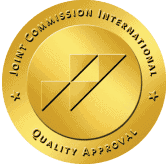You deserve compassionate, evidence-based treatment that addresses both the physical and psychological aspects of meth addiction. Recovery is possible, and you don’t have to face this challenge alone.
Start your recovery journey today – Call (833) 530-0291
We’ve helped hundreds of individuals in Southern California reclaim their lives from methamphetamine addiction through our comprehensive treatment programs.
What are the warning signs of methamphetamine addiction?
Recognizing the signs of meth addiction is crucial for getting the help you need. You may be struggling with methamphetamine addiction if you’re experiencing these physical, behavioral, and psychological symptoms:
Physical warning signs you might notice:
- Extreme weight loss and malnutrition from appetite suppression
- Severe dental problems including tooth decay, gum disease, and broken teeth (“meth mouth”)
- Skin sores, scabs, and compulsive scratching from hallucinations
- Rapid heart rate, elevated blood pressure, and chest pain
- Dilated pupils and bloodshot eyes
- Excessive sweating and hyperthermia
- Tremors, twitching, and repetitive movements
- Insomnia and staying awake for days at a time
- Premature aging and deteriorated physical appearance
- Frequent nosebleeds from snorting the drug
Behavioral changes that indicate addiction:
- Obsessive focus on obtaining and using methamphetamine
- Neglecting work, school, or family responsibilities
- Engaging in risky behaviors to get money for drugs
- Isolating from friends and family members
- Lying about drug use and whereabouts
- Aggressive or violent behavior when confronted
- Compulsive cleaning, organizing, or repetitive tasks
- Stealing or engaging in illegal activities
- Abandoning hobbies and activities you once enjoyed
- Continuing use despite serious consequences
Mental health symptoms requiring immediate attention:
- Paranoia and intense suspicion of others
- Visual, auditory, or tactile hallucinations
- Delusional thinking and disconnection from reality
- Severe anxiety and panic attacks
- Depression and suicidal thoughts
- Memory problems and cognitive impairment
- Confusion and disorientation
- Mood swings and emotional instability
- Inability to concentrate or make decisions
- Psychotic episodes requiring emergency intervention
When does methamphetamine use become a medical emergency?
You need immediate medical attention if you or someone you know is experiencing these life-threatening symptoms. Professional treatment centers understand that meth addiction can quickly escalate to dangerous situations requiring emergency intervention.
Crises requiring immediate help:
- Chest pain, heart palpitations, or signs of heart attack
- Difficulty breathing or respiratory distress
- Seizures or convulsions
- Extremely high body temperature (hyperthermia)
- Stroke symptoms including facial drooping or speech problems
- Severe psychotic episodes with violent behavior
- Suicidal thoughts or self-harm behaviors
- Complete loss of touch with reality
- Overdose symptoms including unconsciousness
- Severe dehydration or malnutrition
How does professional methamphetamine addiction treatment work?
You’ll receive comprehensive, evidence-based care designed specifically for stimulant addiction recovery. Our treatment approach addresses both the immediate health risks and long-term recovery needs associated with methamphetamine addiction.
Your treatment journey typically includes:
When you enter treatment, you’ll work with addiction specialists who understand the unique challenges of methamphetamine recovery. Treatment centers offer multiple levels of care to meet you wherever you are in your recovery journey.
Drug Rehab programs provide:
- 24/7 medical supervision during the initial recovery phase
- Comprehensive medical assessment and stabilization
- Individual and group therapy sessions
- Medication management for co-occurring mental health conditions
- Nutritional rehabilitation and medical care
- Family therapy and education programs
Partial Hospitalization Program (PHP) offers:
- Intensive daily treatment while you return home each evening
- Structured therapy schedule with medical oversight
- Cognitive-behavioral therapy specifically for stimulant addiction
- Relapse prevention planning and skill development
- Peer support groups and recovery community building
- Transition planning for continued outpatient care
Intensive Outpatient Program (IOP) includes:
- Flexible scheduling around work or family commitments
- Multiple weekly therapy sessions and support groups
- Continued psychiatric care and medication management
- Life skills training and vocational support
- Family involvement and relationship repair
- Long-term recovery planning and goal setting
Outpatient Program (OP) provides:
- Ongoing support as you rebuild your life
- Regular check-ins with addiction counselors
- Continued access to psychiatric services
- Alumni programs and peer mentorship
- Crisis intervention and relapse prevention support
- Maintenance of recovery skills and coping strategies
What makes methamphetamine addiction treatment effective?
You need specialized treatment approaches that address the unique neurological and psychological effects of methamphetamine addiction. Research shows that comprehensive treatment programs significantly improve long-term recovery outcomes for individuals struggling with stimulant addiction.
Evidence-based treatment methods include:
- Cognitive-behavioral therapy to change thought patterns and behaviors
- Contingency management with incentives for maintaining sobriety
- Motivational interviewing to strengthen commitment to recovery
- Trauma-informed care addressing underlying psychological issues
- Medication-assisted treatment for co-occurring mental health conditions
- Nutritional therapy and medical rehabilitation
- Family therapy to repair relationships and build support systems
- Peer support groups and 12-step program integration
- Relapse prevention training and coping skill development
- Vocational rehabilitation and life skills training
Professional treatment centers understand that methamphetamine addiction affects brain chemistry in ways that require specialized intervention. The drug’s impact on dopamine receptors means that you may experience intense cravings and depression during early recovery, making professional support essential for success.
Why is specialized care crucial for methamphetamine recovery?
You’re facing unique challenges that require expertise in stimulant addiction treatment. Methamphetamine creates specific neurological changes that differ from other substances, requiring specialized treatment approaches for effective recovery.
Methamphetamine’s impact on your brain and body:
The drug causes significant damage to dopamine-producing neurons, which affects your ability to experience pleasure naturally. This neurological damage can persist for months or years, making professional treatment essential for managing the recovery process.
You may experience prolonged withdrawal symptoms including severe depression, intense cravings, cognitive impairment, and fatigue that can last for weeks or months. Treatment centers provide the medical supervision and psychological support necessary to navigate these challenging symptoms safely.
Our comprehensive approach addresses:
- Neurological healing through targeted therapies and medical support
- Cognitive rehabilitation to restore memory and decision-making abilities
- Psychiatric care for co-occurring mental health conditions
- Medical treatment for physical health complications
- Nutritional rehabilitation to restore physical health
- Dental care coordination for “meth mouth” treatment
- Trauma therapy for underlying psychological issues
- Family counseling to rebuild damaged relationships
- Vocational support to restore career and financial stability
- Long-term recovery planning and relapse prevention
We understand that methamphetamine addiction often co-occurs with other mental health conditions, including depression, anxiety, PTSD, and bipolar disorder. Our integrated treatment approach addresses all aspects of your health simultaneously, providing the comprehensive care you need for lasting recovery.
How do treatment programs support long-term recovery?
You’ll develop the skills, support systems, and coping strategies necessary for maintaining sobriety long after completing formal treatment. Recovery from methamphetamine addiction is a lifelong journey that requires ongoing support and commitment.
Your long-term recovery plan includes:
Treatment centers recognize that successful recovery extends far beyond initial sobriety. You’ll work with counselors to develop a comprehensive plan that addresses all aspects of your life, from relationships and career goals to mental health maintenance and relapse prevention.
Skill development focuses on:
- Identifying and managing triggers that could lead to relapse
- Developing healthy coping mechanisms for stress and emotional challenges
- Building strong support networks within the recovery community
- Establishing daily routines that support physical and mental health
- Learning communication skills for rebuilding relationships
- Setting and achieving personal and professional goals
- Managing co-occurring mental health conditions effectively
- Creating accountability systems with sponsors and mentors
- Developing financial responsibility and career stability
- Maintaining physical health through proper nutrition and exercise
Research indicates that individuals who complete comprehensive treatment programs have significantly higher success rates in maintaining long-term sobriety. However, it’s important to understand that recovery is an ongoing process, and approximately 61% of individuals treated for methamphetamine addiction may experience relapse within the first year, emphasizing the importance of continued support and treatment.
What should you expect during the treatment process?
You’ll receive personalized care that adapts to your specific needs, circumstances, and recovery goals. Every individual’s journey through methamphetamine addiction recovery is unique, and treatment plans are customized accordingly.
Your treatment experience typically follows this progression:
Initial assessment and planning:
When you first contact a treatment center, you’ll undergo a comprehensive evaluation that examines your physical health, mental health status, addiction severity, and personal circumstances. This assessment helps determine the most appropriate level of care and treatment approach for your situation.
Medical stabilization phase:
You may begin with Drug Rehab if you need intensive medical supervision, or you might start with PHP if you’re medically stable but need intensive daily support. During this phase, medical professionals monitor your physical health while addressing withdrawal symptoms and any medical complications from methamphetamine use.
Active treatment phase:
Whether in PHP or IOP, you’ll participate in individual therapy, group counseling, family sessions, and educational programs. You’ll learn about addiction as a disease, develop coping skills, address underlying trauma or mental health issues, and begin rebuilding damaged relationships.
Transition and maintenance:
As you progress, you’ll typically step down from more intensive care (PHP) to less intensive programs (IOP, then OP) while maintaining the support and accountability necessary for continued recovery. This gradual transition helps ensure you’re prepared for independent living while maintaining access to professional support.
Frequently asked questions about methamphetamine addiction treatment
You should expect treatment to be a long-term commitment rather than a quick fix. The duration of your treatment depends on several factors, including the severity of your addiction, your physical and mental health status, and your personal circumstances.
Drug Rehab programs typically last 30-90 days, providing intensive medical and psychological support during the critical early recovery period. PHP usually continues for 4-8 weeks, offering structured daily treatment while you begin rebuilding your life. IOP can last 3-6 months or longer, providing ongoing support as you transition back to work, school, or family responsibilities. OP may continue for a year or more, ensuring you have continued access to professional support and accountability.
Treatment centers understand that methamphetamine addiction recovery is a gradual process. The drug’s effects on brain chemistry mean that you may need extended support to fully restore normal brain function and develop sustainable recovery skills.
You’ll benefit most from evidence-based therapies specifically proven effective for stimulant addiction. Cognitive-behavioral therapy (CBT) is particularly effective because it helps you identify and change the thought patterns and behaviors that contribute to drug use.
Contingency management has shown remarkable success in treating methamphetamine addiction by providing tangible rewards for maintaining sobriety and meeting treatment goals. This approach works particularly well with stimulant addiction because it helps restore the brain’s reward system that has been damaged by methamphetamine use.
Motivational interviewing helps you explore and resolve ambivalence about recovery, strengthening your personal motivation for change. Trauma-informed therapy addresses underlying psychological issues that may contribute to addiction, while family therapy helps repair relationships and build strong support systems essential for long-term recovery.
You likely have coverage for addiction treatment through your insurance plan, as mental health and substance abuse treatment are considered essential health benefits under the Affordable Care Act. Most insurance plans, including private insurance, Medicaid, and Medicare, provide coverage for various levels of addiction treatment.
Treatment centers typically work directly with insurance companies to verify your benefits and maximize your coverage. You may be responsible for copayments, deductibles, or coinsurance, but many facilities offer payment plans or financial assistance programs to help make treatment affordable.
It’s important to contact both your insurance company and potential treatment centers to understand your specific coverage and out-of-pocket costs. Don’t let financial concerns prevent you from seeking the help you need – many options are available to make treatment accessible.
You absolutely can recover from methamphetamine addiction with proper treatment and support. While methamphetamine addiction is a serious condition that causes significant changes to brain chemistry, the brain has remarkable capacity for healing when given the right support and time.
Recovery requires commitment, professional treatment, and ongoing support, but thousands of individuals have successfully overcome methamphetamine addiction and rebuilt fulfilling lives. The key is getting comprehensive treatment that addresses both the physical and psychological aspects of addiction while building strong support systems for long-term recovery.
Treatment centers have extensive experience helping individuals recover from even severe methamphetamine addiction. With evidence-based treatment approaches, medical support, and commitment to the recovery process, you can overcome addiction and reclaim your life.
Contact Assure Recovery for methamphetamine addiction treatment
You don’t have to face methamphetamine addiction alone. Assure Recovery provides comprehensive, compassionate treatment for individuals struggling with stimulant addiction throughout Southern California. Our experienced team understands the unique challenges of methamphetamine recovery and is committed to helping you achieve lasting sobriety.
Take your first step toward recovery today:
- Call us now:(833) 530-0291
- Learn more about our approach:https://assurerecovery.com/about/
- Get additional information:https://assurerecovery.com/contact/
Our admissions team is available 24/7 to answer your questions, verify your insurance coverage, and help you begin your recovery journey. You can start healing today – contact Assure Recovery now to learn how our Drug Rehab, Partial Hospitalization Program (PHP), Intensive Outpatient Program (IOP), and Outpatient Program (OP) can help you overcome methamphetamine addiction and rebuild your life.
Recovery is possible, and you deserve the chance to reclaim your health, relationships, and future. Call (833) 530-0291 now to speak with an addiction specialist who can help you take the first step toward lasting recovery.



